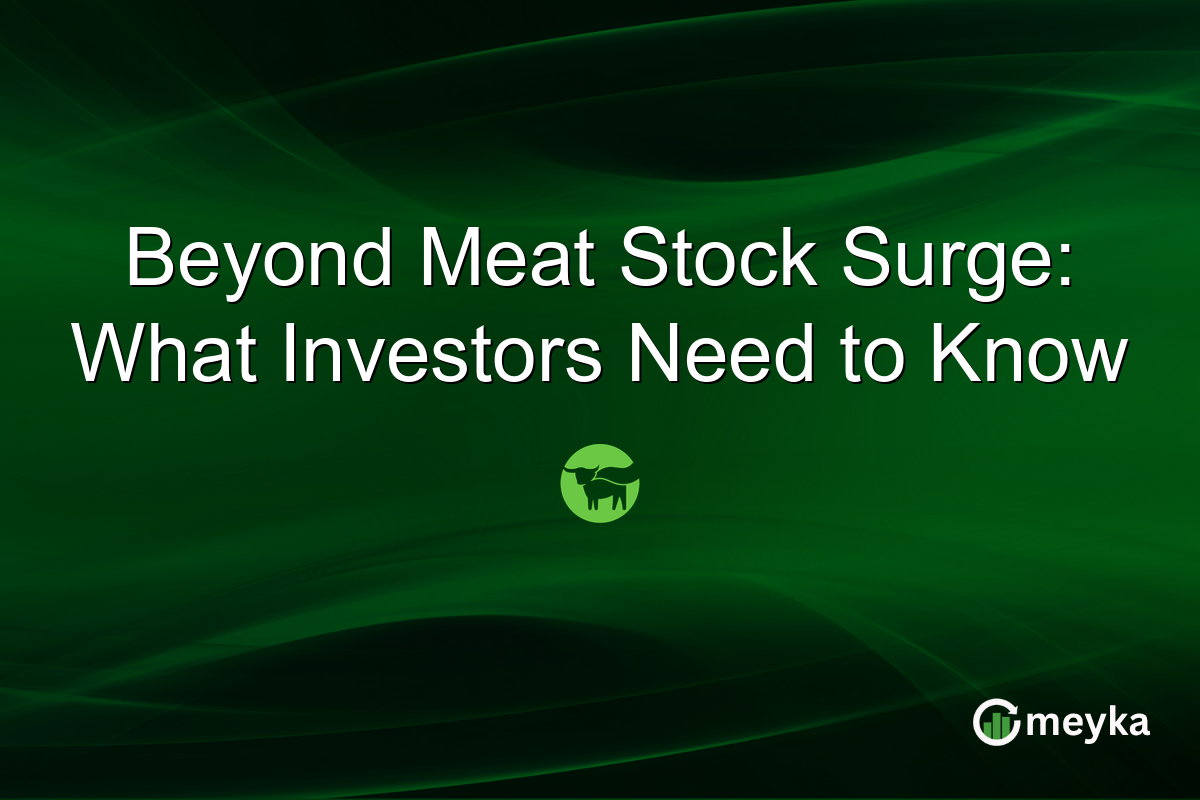Beyond Meat Stock Surge: What Investors Need to Know
Today, Beyond Meat’s stock experienced a dramatic and unexpected surge, climbing over 50% in a single day. This jump occurred amidst soaring trading volume with no significant corporate announcements. The market upheaval was primarily driven by a short squeeze, as traders hurried to cover their positions in this heavily shorted stock. This event highlights the volatility often found in speculative trading, particularly in the plant-based foods sector.
Understanding the BYND Short Squeeze
A short squeeze occurs when a heavily shorted stock rises sharply, forcing short sellers to buy shares to cover their positions. This buying pressure can drive prices even higher. For Beyond Meat (BYND), the massive surge was part of such a squeeze, resulting in a price spike over 50% today. Despite no new developments from the company, the market reaction underscores how speculative movements can influence stock prices significantly. Traders who were betting against the stock had to rethink their strategies rapidly.
Beyond Meat Trading Volume and Market Impact
The trading volume for Beyond Meat shares skyrocketed to over 438 million, far exceeding its average of around 13 million. This surge in volume highlights the intense interest from traders and investors trying to capitalize on the price movement. The high volume suggests that not only were short sellers scrambling to cover positions, but opportunistic investors saw potential gains as well. Such events can add layers of complexity for those tracking the stock’s performance and trying to anticipate future fluctuations.
More on Yahoo Finance.
Market Sentiment and Speculative Trading
Today’s surge in Beyond Meat’s share price comes amid ongoing challenges for the plant-based food company. Despite the stock’s recent jump, analysts maintain a generally bearish view. The consensus rating remains at “Sell,” with significant caution advised due to the company’s financial performance and market conditions. Speculative trading can add volatility, as seen with Beyond Meat, but it’s essential for investors to consider underlying business fundamentals. The stock’s previous decline reflects broader concerns over growth sustainability and market saturation in the plant-based sector.
Final Thoughts
Beyond Meat’s unexpected stock surge today amidst a short squeeze provides a fascinating case study in speculative trading dynamics. While the price climbed over 50%, the underlying issues that have pressured the stock remain unresolved. Analysts continue to recommend caution, reflecting broader uncertainty about the company’s financial health and market position. For investors, it’s crucial to differentiate between short-term price movements driven by market mechanics and the long-term growth potential of Beyond Meat—a company still facing significant challenges in a competitive industry. As the dust settles, staying informed with real-time updates will be vital, particularly for those tracking promising yet volatile sectors like plant-based foods. Using advanced platforms like Meyka for insights could provide a vital edge in navigating this complex landscape.
FAQs
The surge in Beyond Meat’s stock price is attributed to a short squeeze, where traders rushed to cover their short positions in the heavily shorted stock, driving the price higher.
No, the surge in Beyond Meat’s stock price was not due to any major corporate announcements. It was primarily driven by market mechanics and speculative trading.
The trading volume for Beyond Meat skyrocketed to over 438 million, significantly higher than its average volume of around 13 million, marking a huge increase in trading activity.
Investors should be cautious with speculative stocks, as price spikes often reflect market dynamics rather than underlying business fundamentals. Focus on financial health and industry trends.
Meyka offers AI-powered insights and predictive analytics, providing real-time updates and analysis to help investors make informed decisions in volatile markets.
Disclaimer:
This is for information only, not financial advice. Always do your research.






